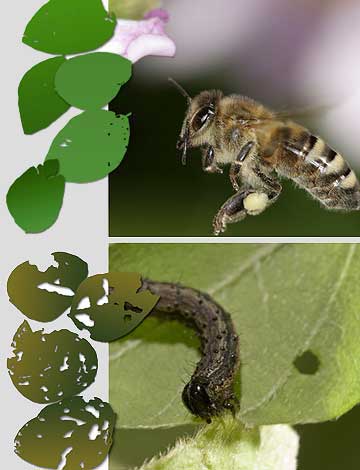Bees' Brains Morph to Avoid Mid-Life Crisis

Get the world’s most fascinating discoveries delivered straight to your inbox.
You are now subscribed
Your newsletter sign-up was successful
Want to add more newsletters?

Delivered Daily
Daily Newsletter
Sign up for the latest discoveries, groundbreaking research and fascinating breakthroughs that impact you and the wider world direct to your inbox.

Once a week
Life's Little Mysteries
Feed your curiosity with an exclusive mystery every week, solved with science and delivered direct to your inbox before it's seen anywhere else.

Once a week
How It Works
Sign up to our free science & technology newsletter for your weekly fix of fascinating articles, quick quizzes, amazing images, and more

Delivered daily
Space.com Newsletter
Breaking space news, the latest updates on rocket launches, skywatching events and more!

Once a month
Watch This Space
Sign up to our monthly entertainment newsletter to keep up with all our coverage of the latest sci-fi and space movies, tv shows, games and books.

Once a week
Night Sky This Week
Discover this week's must-see night sky events, moon phases, and stunning astrophotos. Sign up for our skywatching newsletter and explore the universe with us!
Join the club
Get full access to premium articles, exclusive features and a growing list of member rewards.
A person changing jobs at mid-life might wish for a redesigned brain up to the fresh task. Honeybees go through just such a metamorphosis, a new study finds.
The research adds to an impressive list of bee qualities, including the recent discovery that bees can count.
Female worker bees begin adult life working in the hive, doing such things as taking care of the baby bees. By around 2-3 weeks of age, however — roughly equivalent to middle age in human years —they make a major career change, switching to foraging for nectar and pollen.
(The queen, meanwhile, lounges around and mates with up to 20 males.)
Anyway, foraging requires new skills. A middle-age bee must now navigate to and from feeding sites and communicate the location of food to other bees (sometimes with a fantastic waggle). And she becomes a frequent flier, racking up hundreds of miles in the remainder of her short life.
Researchers from Brazil and Cuba analyzed hundreds of bee brains, comparing proteins produced at the direction of genes in nurses vs. foragers. The brains of nurse bees have higher levels of proteins involved in caste determination in the complex society of these insects. The brains of experienced foragers, on the other hand, have more proteins linked to other vital activities, such as energy production. Their proteomes (the set of proteins expressed by their genes) are quite different, the scientists conclude.
"Our study demonstrated clear brain proteome differences between honey bee nurse and forager subcastes with distinct social roles," the researchers write in the Journal of Proteome Research, a publication of the American Chemical Society.
Get the world’s most fascinating discoveries delivered straight to your inbox.
- Video: Bees Scare Elephants
- Video: Wasps Can Be Trained
- Amazing Animal Abilities
{{ video="051007BeesElephants" title="Bees Scare Elephants" caption="A herd of elephants flee the scene after they hear buzzing bees. Credit: Lucy King, University of Oxford" }}
Robert is an independent health and science journalist and writer based in Phoenix, Arizona. He is a former editor-in-chief of Live Science with over 20 years of experience as a reporter and editor. He has worked on websites such as Space.com and Tom's Guide, and is a contributor on Medium, covering how we age and how to optimize the mind and body through time. He has a journalism degree from Humboldt State University in California.
 Live Science Plus
Live Science Plus











